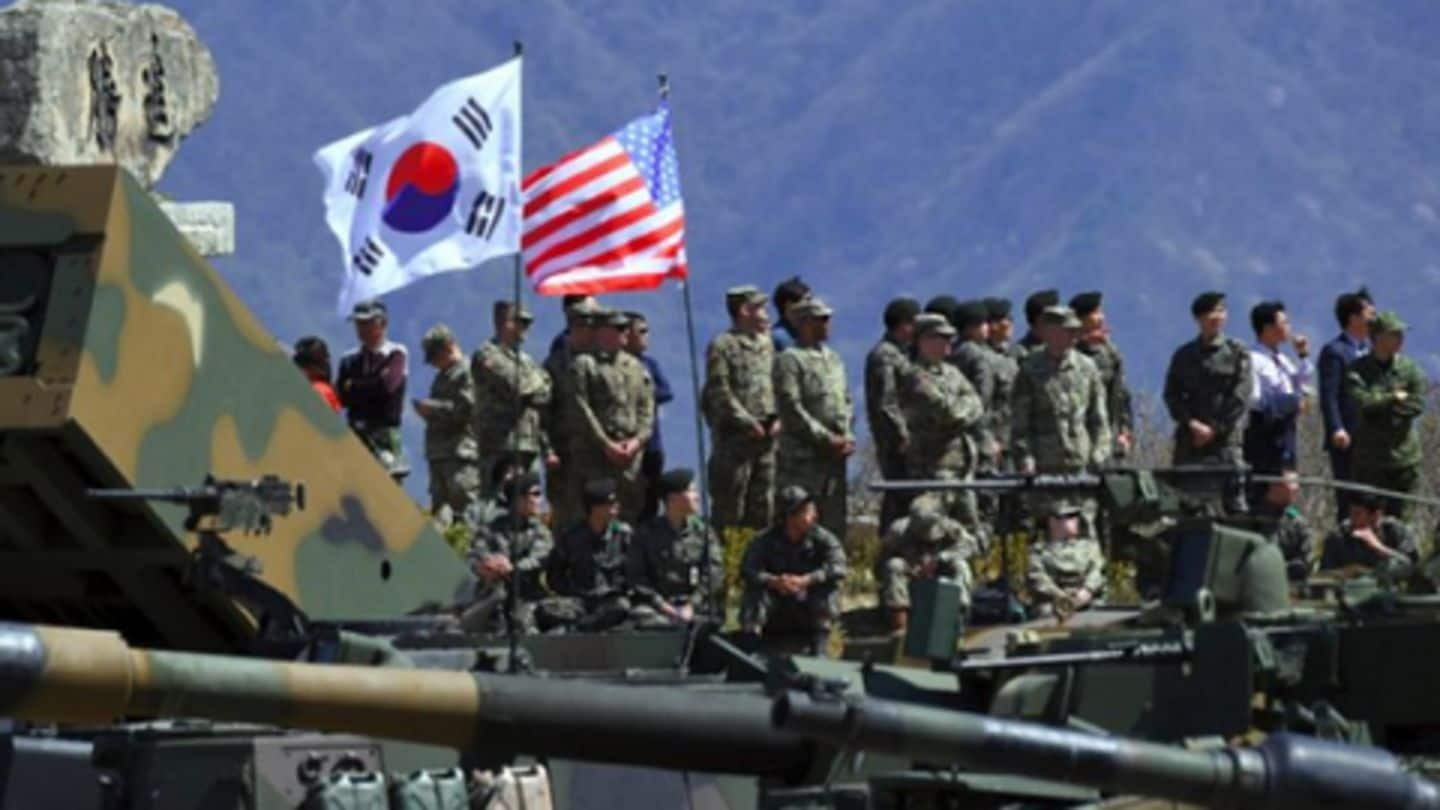
South Korea, US to end their large-scale joint military exercises
What's the story
The US and South Korea today said they will end their annual large-scale joint military exercises as Washington pursues efforts to improve ties with North Korea.
The decision comes days after the conclusion of US President Donald Trump's second summit with North Korean leader Kim Jong-un in Hanoi, which ended without a formal agreement but with both sides suggesting they would keep talking.
US forces
Trump ruled out withdrawing 28,500 US forces from South Korea
Trump, however, ruled out withdrawing any of the 28,500 US forces based in South Korea to defend it from its nuclear-armed neighbor, which invaded in 1950.
Any such drawdown would face a strong pushback from the US Congress and Japan, whose conservative government is deeply wary of North Korea's intentions.
But the US President has repeatedly complained over the cost of the military drills.
Decision
Decided to conclude Key Resolve and Foal Eagle drills: Pentagon
Pyongyang has always condemned the US military drills as provocative rehearsals for invasion.
Pentagon, in a statement, said during a Saturday phone call between South Korean Defense Minister Jeong Kyeong-doo and his US counterpart Patrick Shanahan, "both sides decided to conclude the Key Resolve and Foal Eagle series of exercises."
Foal Eagle is the biggest of the regular joint exercises held by the allies.
Foal Eagle
Foal Eagle has involved 200,000 South Korean, 30,000 US forces
The Foal Eagle has involved 200,000 South Korean forces and some 30,000 US soldiers.
It's accompanied by Key Resolve, a computer-simulated war game conducted by military commanders which usually begins in March and runs for about 10 days.
The two allies will instead carry out "adjusted outside maneuver training and united command exercises to continue firm military readiness," Seoul's Defense Ministry said today.
Reason
Decision reached to support efforts for North Korea's denuclearization: Seoul
The decision was reached to support ongoing diplomatic efforts for North Korea's denuclearization and ease military tensions with the North, the Defense Ministry further said.
Opponents of scrapping the drills have warned it could impact the combat readiness of the combined US and South Korean forces and hand the North a strategic advantage on the divided peninsula, but analysts said such concerns were exaggerated.
Quote
'Suspension of drills won't be a serious security threat'
"Suspending or downgrading the US-South Korean drills may hurt the readiness of the two militaries, but I don't think it's going to be a serious security threat to South Korea," Ahn Chan-il, the President of the World Institute for North Korea Studies in Seoul, said.
Statement
Washington encouraged North Korea to scrap its nuclear programme
"The South's conventional forces outclass the North's and given the current situation with the US and the existing sanctions, it is highly unlikely that Pyongyang will do anything with its nuclear weapons in the foreseeable future," Chan-il further said.
Washington has sought to end the long-running tensions on the peninsula and encourage North Korea to scrap its nuclear programme.
Information
US, Seoul scrapped various joint military drills since last year
Since Trump's first summit with Kim last year in Singapore, in which both leaders signed a vaguely-worded commitment to the denuclearization of the Korean peninsula, the US and Seoul have scrapped several joint military drills, and US bombers are no longer flying over South Korea.